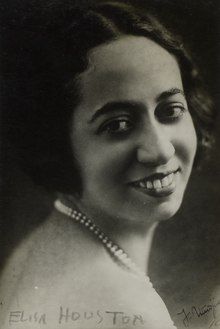

Partner Pagu
Queer Places:
Fresh Pond Crematory and Columbarium
Middle Village, Queens County, New York, USA
.jpg) Elsie Houston (22 April 1902 – 20 February 1943) was a Brazilian singer.
Norma Bengell in her first film, Eternamente Pagu, a biography of Patrícia Galvão,
suggests a lesbian relationship between Pagu
and Elsie Houston, a Brazilian poet living in France (Houston, who is played
in the film by Bengell herself, was married to the French surrealist artist
Benjamin Péret). During a visit to Brazil in 1939, Houston visited Pagu in
prison. In 1934-1935, during the several months she was in Paris, Pagu resided
with Houston, and it is this relationship, with its lesbian overtones, that
Bengell presents in the film. Pagu had also a relationship with the painter
Tarsila do Amaral, in whose
company Pagu meets Houston in 1929.
Elsie Houston (22 April 1902 – 20 February 1943) was a Brazilian singer.
Norma Bengell in her first film, Eternamente Pagu, a biography of Patrícia Galvão,
suggests a lesbian relationship between Pagu
and Elsie Houston, a Brazilian poet living in France (Houston, who is played
in the film by Bengell herself, was married to the French surrealist artist
Benjamin Péret). During a visit to Brazil in 1939, Houston visited Pagu in
prison. In 1934-1935, during the several months she was in Paris, Pagu resided
with Houston, and it is this relationship, with its lesbian overtones, that
Bengell presents in the film. Pagu had also a relationship with the painter
Tarsila do Amaral, in whose
company Pagu meets Houston in 1929.
Elsie Houston was born in Rio de Janeiro in 1902. She was the descendant of confederados, southern plantation owners that had come to Brazil after the American Civil War. Elsie's father was James Franklin Houston, an American dentist from Tennessee who settled in Rio de Janeiro in 1892, and Arinda Galdo, a Brazilian descendant of Portuguese from Madeira Island.
Elsie Houston figured in the Brazilian literary/art/music scene during a critical time in its history. It was an era of tremendous creative energy. In addition to Mário de Andrade and Patricia Galvão (Pagu), Elsie Houston knew others famous members of this artists movement, including the composer Heitor Villa-Lobos, the painters Flavio de Carvalho, Anita Malfatti and Tarsila do Amaral, and the leader of Brazilian modernism, Oswald de Andrade. Elsie moved to Germany and studied with Lilli Lehmann a renowned voice teacher. She then studied with another famed soprano, Ninon Vallin, first in Argentina and then in Paris. Houston's relationship with Heitor Villa Lobos began in her teens. Houston was definitely a soloist at Villa Lobos's 1927 Paris concerts. In 1928 she married Benjamin Péret, French surrealist poet, with whom she lived in Brazil from 1929 to 1931. Their son, Geyser, was born in Rio de Janeiro in 1931. By the late 1930s, Elsie Houston had moved to New York City. She was a brilliant singer, particularly skilled in the interpretation of Brazilian songs. The New York Times during this era praised for her performances. She was also an active supporter of young Latin American composers, performing early pieces by composers such as Jayme Ovalle and Camargo Guarnieri.
She died in 1943. Her death was listed as an apparent suicide.

My published books: